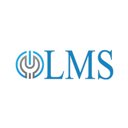About Job
The MAT (Medication-Assisted Treatment) Outpatient Substance Use Disorder (SUD) Counselor is responsible for providing counseling and support services to individuals receiving medication-assisted treatment for substance use disorders in an outpatient setting. This role involves conducting comprehensive assessments, developing treatment plans, facilitating individual and group therapy sessions, and collaborating with a multidisciplinary team to promote recovery and positive outcomes. The SUD Counselor plays a crucial role in supporting individuals in their journey towards sustained sobriety and improved overall well-being.
Key Responsibilities:
Assessment and Treatment Planning: Conduct thorough assessments of individuals' substance use history, mental health status, social support systems, and treatment goals to develop individualized treatment plans.
Individual Counseling: Provide individual counseling and therapy sessions to address underlying issues, develop coping strategies, and support individuals in their recovery journey. Utilize evidence-based modalities and therapeutic approaches tailored to the unique needs of each individual.
Group Therapy: Facilitate group therapy sessions to create a supportive and therapeutic environment for individuals in medication-assisted treatment. Promote peer support, enhance coping skills, and address common themes in recovery.
Medication Management Collaboration: Collaborate closely with medical professionals and the treatment team to monitor individuals' response to medication-assisted treatment, address medication-related concerns, and ensure a comprehensive and integrated approach to care.
Psychoeducation: Educate individuals and their families about substance use disorders, the effects of medication-assisted treatment, relapse prevention strategies, and healthy coping mechanisms.
Crisis Intervention: Respond promptly to individuals experiencing crisis situations, providing immediate support and implementing appropriate interventions. Collaborate with the treatment team and external resources to ensure the safety and well-being of individuals in crisis.
Documentation and Record-Keeping: Maintain accurate and up-to-date clinical documentation, progress notes, treatment plans, and reports in compliance with legal and regulatory requirements and agency policies.
Coordination of Care: Collaborate with external providers, such as psychiatrists, psychologists, and social workers, to coordinate comprehensive care for individuals with co-occurring mental health conditions and substance use disorders.
Case Management: Assist individuals in accessing additional support services, such as housing assistance, vocational training, and other community resources, to support their overall recovery and improve their quality of life.
Professional Development: Engage in ongoing professional development activities, including trainings, workshops, and supervision, to enhance clinical skills, stay abreast of best practices, and maintain licensure and professional certifications.
Requirements:
Certification (e.g. RAD-T) or licensure as a Substance Use Disorder Counselor (e.g., Certified Alcohol and Drug Counselor, Licensed Chemical Dependency Counselor).
Enrollment and at least 90 days Completed in a SUD Counselor education program
Experience in providing counseling and support to individuals with substance use disorders, preferably in an outpatient or medication-assisted treatment setting.
Knowledge of evidence-based practices for substance use disorder treatment, including motivational interviewing, cognitive-behavioral therapy, and relapse prevention strategies.
Familiarity with medication-assisted treatment approaches, such as the use of medications like methadone, buprenorphine, or naltrexone.
Strong assessment and diagnostic skills to identify substance use disorders and develop appropriate treatment plans.
Excellent communication, active listening, and empathy skills to establish rapport and build therapeutic relationships with clients.
Ability to work effectively in a multidisciplinary team, collaborating with medical professionals, case managers, and support staff to provide integrated care.
Understanding of confidentiality and ethical guidelines in substance use disorder counseling.
Cultural sensitivity and the ability to adapt counseling approaches to meet the needs of individuals from diverse backgrounds.




